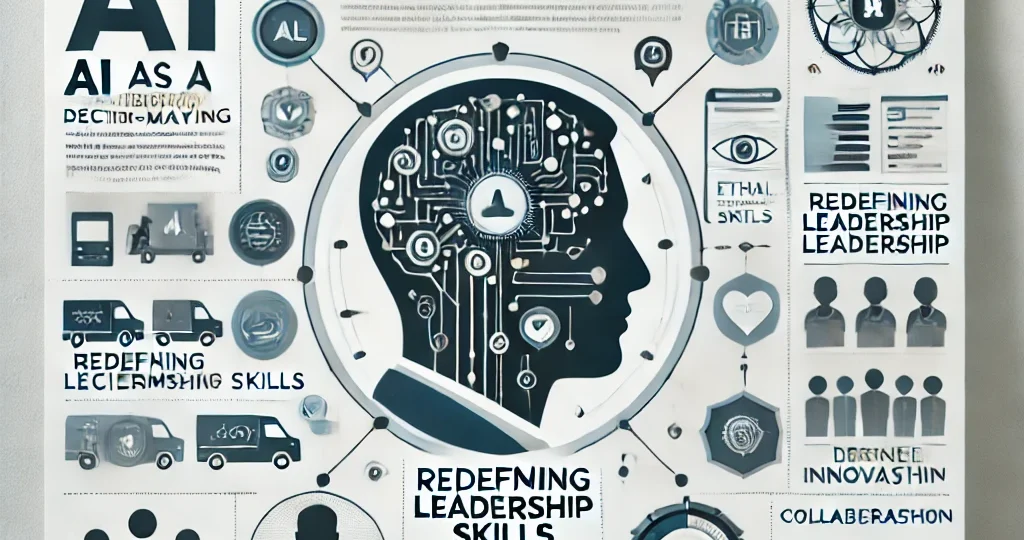
As artificial intelligence (AI) continues to transform industries, leadership is evolving to meet the challenges and opportunities of the digital age. Leaders now face a critical task: how to integrate AI into their decision-making processes while maintaining human-centric leadership that fosters trust, collaboration, and creativity. The future of leadership is no longer just about managing people—it’s about effectively navigating the intersection of technology and humanity.
In this article, we’ll explore the ways AI is reshaping leadership and what leaders must do to stay relevant in this new era.
1. AI as a Decision-Making Tool
AI is becoming an indispensable tool for leaders, providing data-driven insights that enhance decision-making. From predictive analytics to automated reporting, AI allows leaders to make more informed choices, reduce bias, and improve operational efficiency.
How AI enhances decision-making:
- Data-Driven Insights: AI can process large volumes of data quickly, helping leaders identify patterns and trends that would be difficult to detect manually.
- Predictive Analytics: AI-powered tools can predict market shifts, customer behavior, and risks, enabling proactive leadership.
- Automation: Routine decision-making can be automated, allowing leaders to focus on strategic tasks that require human judgment.
While AI supports faster and more accurate decisions, leaders must still apply emotional intelligence and ethical considerations to their choices.
2. Redefining Leadership Skills
In the age of AI, the skills required for effective leadership are changing. Traditional leadership qualities like communication, empathy, and vision remain critical, but now leaders must also develop a deeper understanding of technology and data.
Key leadership skills for the AI era:
- Tech Savviness: Leaders need to understand AI tools and their capabilities to implement them effectively.
- Data Literacy: Leaders must be able to interpret data and make decisions based on AI-driven insights.
- Human-Centric Leadership: While AI handles routine tasks, leaders must focus on building relationships, fostering creativity, and driving innovation.
AI will never replace the need for human leadership, but it will require leaders to adapt and develop new competencies to lead effectively in a tech-driven world.
3. Ethical Leadership in an AI-Driven World
As AI plays a greater role in decision-making, ethical leadership becomes even more crucial. Leaders must ensure that AI systems are transparent, fair, and aligned with the organization’s values. This includes addressing concerns like data privacy, bias in AI algorithms, and the potential displacement of jobs.
Ethical considerations for AI in leadership:
- Transparency: Leaders must ensure that AI decisions are explainable and understandable to employees and stakeholders.
- Fairness: AI algorithms must be free from bias to avoid unfair outcomes, particularly in hiring, promotions, and performance evaluations.
- Job Impact: Leaders must anticipate the impact of AI on the workforce and develop strategies for reskilling and redeployment to ensure job security.
Leaders who prioritize ethical AI usage will build trust and create a more inclusive, responsible workplace.
4. AI-Driven Innovation and Collaboration
AI can enhance innovation by providing leaders with tools for rapid prototyping, market analysis, and product development. It also opens the door for new forms of collaboration between humans and machines.
AI’s role in driving innovation and collaboration:
- Fostering Creativity: AI can handle data-intensive tasks, freeing leaders and teams to focus on creative problem-solving and innovation.
- Collaborative Tools: AI-powered platforms can facilitate better communication and collaboration across global teams by breaking down language barriers and managing complex workflows.
- Accelerating Time-to-Market: With AI’s ability to streamline research and development processes, leaders can bring new products and services to market faster than ever before.
AI is not only a tool for efficiency—it’s a catalyst for leadership innovation.
Conclusion: Balancing Technology and Humanity
The future of leadership in the age of AI will be defined by those who can balance technological advancements with human qualities. While AI offers immense potential to enhance decision-making, innovation, and efficiency, the essence of leadership—empathy, ethical responsibility, and vision—will remain irreplaceable. Leaders who embrace AI while maintaining a human-centric approach will be best positioned to succeed in the years ahead.
How is your leadership evolving with the rise of AI?

